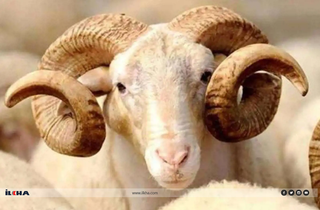It takes place during the Eid al-Adha, the Feast of Sacrifice, which marks the completion of the Hajj pilgrimage, one of Islam's Five Pillars of worship. The act of Qurbani commemorates the submission of Prophet Abraham and his son Ishmael to Allah's command, opening the path of divine submission for all believers.
Abraham's willingness to sacrifice a ram as a divine ransom for Ishmael's life demonstrated unwavering faith. Allah accepted their sincere intentions and rewarded their submission by providing a ram in place of Ishmael. This act of devotion brought them closer to Allah, reflecting the essence of Qurbani, which means to draw nearer to Him through intentional action.
The term Qurbani, derived from the Arabic word qurbanah, emphasizes the intention of drawing near to Allah through ritual sacrifice. It signifies the purpose behind the act and guides believers in performing it with sincerity and devotion. This term has now been widely adopted in various languages, including English, Urdu, Turkish, and Bengali.
The Quran highlights three essential aspects of Qurbani: its purpose, how it should be carried out, and the expected outcomes:
Purpose: Allah instructs believers to consider the benefit of sacrificing camels and cattle during the Hajj pilgrimage. Qurbani serves as a means to provide nourishing meat to the needy, including the destitute, hungry, and one's own family, while expressing gratitude to the One Allah.
Method: The Quran emphasizes the mentioning of Allah's name over the sacrificial animals and their proper slaughter. The meat is then distributed among the participants and those in need, following the examples and instructions provided by Prophet Muhammad. The distribution usually involves dividing the meat equally into three parts for charity, gifts to neighbors, relatives, and friends, and consumption within one's own household.
Outcomes: Allah clarifies that neither the flesh nor blood of the sacrificial animals reaches Him. Instead, it is the devotion and fear of Allah within believers that reaches Him. The act of Qurbani allows believers to express their gratitude for the blessing of faith and encourages them to excel in performing good deeds.
During the month of Dhu'l-Hijjah, which is the 12th and final month of the Islamic lunar year, acts of voluntary charity, including Qurbani, hold even greater reward. These are sacred months designated by the Quran, and offering charity during this time is highly recommended as it ranks among the best acts of worship.
In summary, Qurbani holds a special place in Islam as a ritual sacrifice that symbolizes worship, gratitude, and submission to Allah. Its significance lies in providing meat to the needy, following the example of Prophet Abraham, and drawing closer to Allah through sincere devotion. The act of Qurbani should be performed with a clear intention to benefit those in need and express gratitude to the Almighty. (ILKHA)



 Güncel
Güncel
 Dünya
Dünya
 Dünya
Dünya
 Güncel
Güncel
 Dünya
Dünya
 Dünya
Dünya
 Dünya
Dünya
 Dünya
Dünya
 Güncel
Güncel
 Güncel
Güncel





